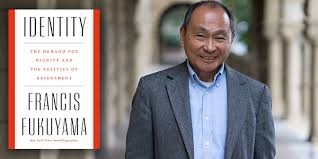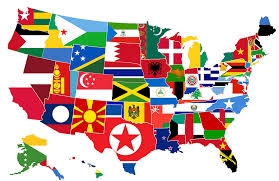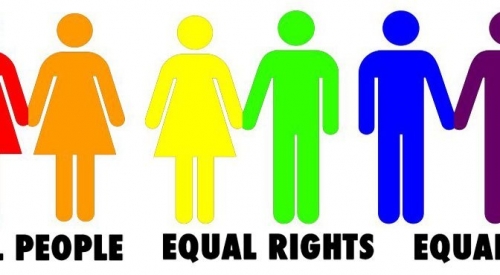Francis Fukuyama’s latest book Identity was written to forestall the rise of Right-wing identity politics, but, as I argued in “Fukuyama on Identity Politics [2],” the book is actually very useful to White Nationalists because it concedes a number of our basic premises while offering weak reasons to resist our ultimate political conclusions. This is especially apparent in his discussion of diversity.
Diversity within the Same Society Causes Conflict
One of Fukuyama’s most useful concessions is that diversity within the same state causes conflict. He opens chapter 12, “We the People,” with an account of how Syria—a racially homogeneous society with significant ethnic and religious diversity—descended into a devastating civil war in 2011.
Let’s bracket the role of US intervention in kicking off the Syrian civil war, since outside forces were only exploiting existing fault lines. Instead, let’s just ask—given that religious and ethnic diversity caused Syria to descend into war—how is the much greater religious, ethnic, and racial diversity of America a strength?
It is a good question, to which Fukuyama offers four remarkably weak answers.
Fukuyama’s first reason for making one’s homeland more like Yugoslavia is the throwaway claim that “Exposure to different ways of thinking and acting can often stimulate innovation, creativity, and entrepreneurship” (p. 126). Of course we can expose ourselves to different ways of thinking and acting without changing the ethnic compositions of our societies. Furthermore, how much of this alleged innovation, creativity, and entrepreneurship is due to handling the problems of diversity? After all, you can stimulate economic activity by breaking windows. Increasing ethnic diversity certainly stimulates the market for CCTVs, window bars, pepper spray, car alarms, concrete barriers, and morning after pills. But those aren’t good things.
Fukuyama’s second reason to increase the risk of a Syrian-style civil war is all the great restaurants. No, I am not kidding:
Diversity provides interest and excitement. In the year 1970, Washington D.C. was a rather boring biracial city in which the most exotic food one would dine on was served at the Yenching Palace on Connecticut Avenue. Today, the greater Washington area is home to an incredible amount of ethnic diversity: one can get Ethiopian, Peruvian, Cambodian, and Pakistani food and travel from one small ethnic enclave to another. The internationalization of the city has stimulated other forms of interest: as it becomes a place where young people want to live, they bring new music, arts, technologies, and entire neighborhoods that didn’t exist before. (p. 127)
Where to begin?
First, to say that Washington DC in 1970 was a rather boring biracial city is to snobbishly denigrate both the black and white populations of the city, who—when they weren’t clashing with one another—found it a nice place to live. (Presumably the whites who could not economically segregate themselves from blacks were pretty well gone by then.)
Second, since when is the presence of ethnic restaurants an index of social well-being—as opposed, say, to social trust, neighborliness, and other values that Robert Putnam found decline as diversity increases?[1] [3]
Third, what percentage of non-whites run ethnic restaurants? Is it even 1%? I would gladly allow them to stay if we could deport the rest. But even better, if there is such a crying need for shawarma, why not learn to cook it ourselves?
Fourth, who are these young rootless cosmopolitan urbanites we are supposed to prize? Basically, they are Jews and people who think and live like them. But why should their preferences trump those of “boring” white (and black) people with families and jobs and communities?
And those “entire neighborhoods that didn’t exist before,” actually did exist before. At first they were occupied by white people, who were displaced by black riots and crime. Then they were occupied by blacks, who were displaced by hipsters driving up rents and calling in the police to enforce their preferred standards of behavior.
Diversity, in short, is not progress for all. Diversity is just a euphemism for fewer white people, especially “boring” white people who have families and yards but often lack tattoos and a taste for micro-brews. Do you really think these people won’t eventually start fighting back against their ethnic displacement?
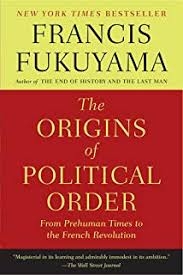 The third reason Fukuyama gives for emulating the Star Wars cantina comes from biology. Diversity, he informs us, is “crucial to [biological] resilience” and “the motor of evolution itself.” Amazingly, Fukuyama does not see that this is actually an argument for racial and cultural homogeneity and separatism. For when two distinct species occupy the same ecological niche, the result is the destruction of biological diversity through extinction or hybridization. If human biological and cultural diversity are values, then ethnonationalism follows as a matter of course, for ethnonationalism creates barriers to the chief causes of biological extinction, namely habitat loss, competition from invasive species, hybridization, and predation.
The third reason Fukuyama gives for emulating the Star Wars cantina comes from biology. Diversity, he informs us, is “crucial to [biological] resilience” and “the motor of evolution itself.” Amazingly, Fukuyama does not see that this is actually an argument for racial and cultural homogeneity and separatism. For when two distinct species occupy the same ecological niche, the result is the destruction of biological diversity through extinction or hybridization. If human biological and cultural diversity are values, then ethnonationalism follows as a matter of course, for ethnonationalism creates barriers to the chief causes of biological extinction, namely habitat loss, competition from invasive species, hybridization, and predation.
Fukuyama’s fourth reason for becoming more like Rwanda is that diversity is valuable because immigrants “resent being homogenized into larger cultures” and “want to hold on to the world’s fast-disappearing indigenous languages, and traditional practices that recall earlier ways of life” (p. 127).
There are several problems with this point. First, it is not an argument for why increased diversity is good for the natives of a society. How is America a better place by being more accommodating to immigrants who refuse to assimilate our customs and language? Second, if immigrants want to preserve their languages and customs, they should simply stay in their homelands. If they want to move to another country, shouldn’t they have to bear the cost of assimilation rather than impose the burden of unassimilated immigrants on their new society? Third, Fukuyama himself recommends imposing assimilationist policies two chapters later. So in what sense does he regard this sort of diversity as a value at all?
Fukuyama’s arguments for diversity are so weak, one has to wonder if he is even sincere. This impression is underscored by the fact that as soon as he offers his final argument (which he takes back later), he declares, “On the other hand, diversity is not an unalloyed good. Syria and Afghanistan are very diverse places, but such diversity yields violence and conflict rather than creativity and resilience” (pp. 127–28). National unity, he claims, has gotten a bad reputation “because it came to be associated with an exclusive, ethnically based sense of belonging known as ethno-nationalism” (p. 128). But there is nothing wrong with national identity as such, only “narrow, ethnically based, intolerant, aggressive, and deeply illiberal” forms of national identity. But, Fukuyama assures us, “National identities can be built around liberal and democratic political values” (p. 128).
Fukuyama then offers six arguments for the goodness of national unity.
First, it promotes physical security, as opposed to civil war and ethnic cleansing.
Second, it promotes just government as opposed to corrupt and factional government.
Third, it facilitates economic development.
Fourth, it promotes a wide range of social trust, which is an important factor in ensuring honest government and economic flourishing.
Fifth, it makes possible the welfare state. People are willing to pay high taxes if they think they are doing it for themselves, not for parasitic out groups. This is one reason why the United States did not develop as extensive a welfare state as Scandinavia or even Canada next door. The US has a large non-white population, and dark skin has proved to be a reliable marker of those who take more from the state than they contribute. Thus we can predict that rising non-white populations in Europe and elsewhere will lead to the decline of the welfare state.
Finally, national unity makes possible liberal democracy—and all forms of self-government, really—since without unity people do not feel that they are governing themselves. Instead, some groups inevitably feel they are being governed—and exploited—by other groups. For there to be pluralistic democracy without civil war, the different parties have to believe that they are fundamentally part of the same people. People are willing to trade power with other factions only if they do not feel they are being subjugated by an alien people.
All of these arguments have merit. But one has to ask: in what sort of society are they most likely to actually pertain, a society in which there is one race and one culture—or a multiracial, multicultural society where people share a democratic creed and culture? Genetic Similarity theory would predict the former, and the empirical studies of Robert Putnam and Tatu Vanhanen bear this out.
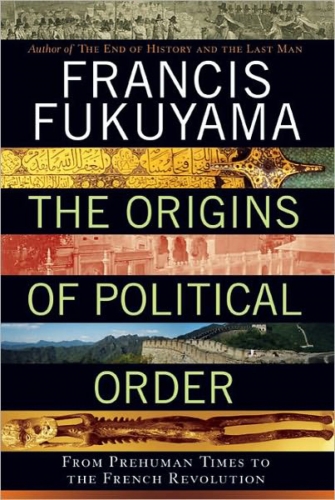 Putnam studied 41 communities in the United States, ranging from highly diverse to highly homogeneous, and found that social trust was strongly correlated with homogeneity and social distrust with diversity. Putnam eliminated other possible causes for variations in social trust and concluded that “diversity per se has a major effect.”[2] [4] The loss of social trust leads to the decline of social order. People feel isolated, alienated, and powerless. They are less trusting of social institutions and strangers and less likely to be altruistic.
Putnam studied 41 communities in the United States, ranging from highly diverse to highly homogeneous, and found that social trust was strongly correlated with homogeneity and social distrust with diversity. Putnam eliminated other possible causes for variations in social trust and concluded that “diversity per se has a major effect.”[2] [4] The loss of social trust leads to the decline of social order. People feel isolated, alienated, and powerless. They are less trusting of social institutions and strangers and less likely to be altruistic.
Vanhanen arrived at similar conclusions from a comparative study of diversity and conflict in 148 countries.[3] [5] Vanhanen found that whether they are rich or poor, democratic or authoritarian, diverse societies have more conflict than homogeneous societies, which are more harmonious, regardless of levels of wealth or democratization.
The Limits of Creedal Nationalism
Another remarkable concession that Fukuyama makes is that merely sharing the same creed is not enough to politically unify a society. National identity is not based on reason but on thumos. People have to passionately identify with their society:
. . . democracies will not survive if citizens are not in some measure irrationally attached to the ideas of constitutional government and human equality through feelings of pride and patriotism. These attachments will see societies through their low points, when reason alone may counsel despair at the working of institutions. (p. 131)
This explains a lot of the White Nationalist frustration with the post-World War II “Baby Boom” Generation. Boomer conservatives are highly resistant to White Nationalist arguments simply because their attachment to color-blind conservative civic nationalism was never based on arguments. Instead, it is based on a passionate thumotic identification with an America that is melting away before their very eyes—and they are remarkably blind to it.
This brings us to the fundamental White Nationalist objection to colorblind civic nationalism. Fukuyama wants all Americans to stop engaging in factional identity politics and instead identify with the whole of America, defined in maximally inclusive liberal democratic terms. But American civic nationalism is not a workable political ideology, because it will only be adopted by whites. Non-whites will continue openly or covertly to practice identity politics, because it benefits them.
Team strategies consistently outperform individualist strategies. Thus if whites practice color-blind individualism while non-whites practice racial and ethnic collectivism, whites will steadily lose wealth and power to non-whites. Thus, in practice, color-blind civic nationalism is simply a mechanism of white dispossession—a mechanism that blinds whites to what is happening and teaches them that blindness is a moral virtue. If you preach blindness as a moral virtue, chances are you are up to no good.
Our people’s irrational identification with American civic nationalism is a huge impediment to White Nationalism. But on balance, thumos works in our favor, because attachments to family, ethnicity, and race are far more concrete and real than attachments to an increasingly polarized and dysfunctional empire and its threadbare ideology.
Thus the best way to deprogram our people is to use thumos against itself by systematically confronting them with how their loyalty to the imperial ideology clashes with their more concrete and natural loyalties. Nothing brings home the moral obscenity of liberal civic nationalism quite like the reactions of the Tibbetts family of Iowa [6] to the murder of their daughter by an illegal alien. Some people are willing to pay quite a lot for authentic burritos.
Liberal Democratic Theory Undermines National Identities
Yet another useful concession to White Nationalism is Fukuyama’s admission that liberal democratic theory undermines national identities. This problem is brought home by the problem of immigration, which is one of the primary forces driving people toward National Populism. Fukuyama concedes that this backlash is essentially reasonable, since levels of migration are at historic highs in America, which has a long history of immigration, and Europe, which does not.
But then Fukuyama offers a stunningly dishonest rejoinder to the white Americans who want to “take back” their country. The US Constitution, he says, establishes a particular political order for “ourselves and our Posterity.” “But it does not define who the people are, or on what basis individuals are to be included in the national community” (p. 133). In fact, the Constitution makes it pretty clear who “ourselves and our posterity” are. Blacks and American Indians are not considered part of the American polity. And in 1790, when the Founders turned their attention to who they were willing to “naturalize” and allow to mix with their posterity, they specified that they be “free white people.”
Thus many white Americans correctly believe that a white republic is their birthright, a birthright that has been long eroded and is now on the brink of being wrested away from them irrevocably. Again, does anyone really believe that white Americans would not start resisting their dispossession once the endgame became clear?
Nonetheless, Fukuyama is correct to point out—citing fellow neocon Pierre Manent—that liberal theory simply assumes the existence of nation-states. Moreover, because liberalism is based on the idea of universal human rights, which prescind from ethnic and racial differences, liberal theory cannot generate borders between states. Indeed, liberalism tends to undermine nation-states and promote global government.
Surprisingly, Fukuyama rejects global government because “no one has been able to come up with a good method for holding such bodies democratically accountable” (p. 138). Moreover, “The functioning of democratic institutions depends on shared norms, perspectives, and ultimately culture, all of which can exist on the level of a national state but which do not exist internationally” (p. 138). Thus Fukuyama concludes that international bodies must be based on the cooperation of sovereign states.
But this defense of the nation-state rings hollow when one recalls that Fukuyama recommends that nation-states make a commitment to liberal democracy central to their identity, which entails that eventually there will be no meaningful differences between them, anyway.
How to Create an Ethnostate
For me, the most remarkable concession that Fukuyama makes to White Nationalism is his discussion of how national identities are created.
First, we can keep borders constant and move people across them, removing existing populations and bringing in new ones.
Second, we can let people stay where they are and move borders to fit them.
These are, of course, the two mechanisms to create racially and ethnically homogeneous states.
Third, we can “assimilate minority populations into the culture of an existing ethnic or linguistic group” (p. 141).
Fourth, we can “reshape national identity to fit the existing characteristics of the society in question” (p. 141).
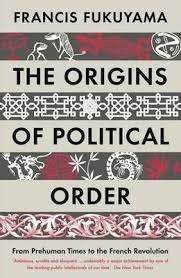 These are the mechanisms preferred by civic nationalists like Fukuyama.
These are the mechanisms preferred by civic nationalists like Fukuyama.
Astonishingly, Fukuyama also grants that “All four of the paths to national identity can be accomplished peacefully and consensually, or through violence and coercion” (p. 142). Yes, Fukuyama is saying that we can create ethnostates by moving borders and peoples in a peaceful and consensual manner, without resorting to violence and coercion. Lest some peoples mount their high horse and lecture other peoples on their historical guilt, Fukuyama also adds that, “All existing nations are the historical by-product of some combination of the four and drew on some combination or coercion and consensus” (p. 142).
But then Fukuyama pulls a fast one:
The challenge facing contemporary liberal democracies in the face of immigration and growing diversity is to undertake some combination of the third and fourth paths—to define an inclusive national identity that fits the society’s diverse reality, and to assimilate newcomers to that identity. What is at stake in this task is the preservation of liberal democracy itself. (p. 143)
Later he writes:
We need to promote creedal national identities built around the foundational ideas of modern liberal democracy, and use public policies to deliberately assimilate newcomers to those identities. Liberal democracy has its own culture, which must be held in higher esteem than cultures rejecting democracy’s values. (p. 166)
First, note that Fukuyama is treating immigration and diversity simply as problems that must be managed. This is true. But since he has only given weak reasons to value diversity at all, why stop at merely managing it?
Why not reduce immigration and diversity dramatically—or eliminate them entirely? Why shouldn’t a society try to be less like Syria, Yugoslavia, or Rwanda? It is not clear whether Fukuyama ever envisions stopping additional diversity. Will there always be “newcomers”? Why?
Fukuyama has already pointed out that it is possible to create more homogeneous societies by moving borders and moving peoples in a completely moral manner, so why are the first two options simply passed over?
Later, Fukuyama writes:
The question is not whether Americans should go backward into an ethnic and religious understanding of identity. The contemporary fate of the United States—and that of any other culturally diverse democracy that wants to survive—is to be a creedal nation. (p. 161)
No, America is not “fated” to be a multicultural society. Nor is Sweden, France, or any other white society. It was not “fate” that opened our borders and deconstructed white norms and cultures in favor of multiculturalism. It was men who decided on this experiment in social engineering, and it was men wielding the tools of statecraft and propaganda that forced it upon white societies.
These decisions can, moreover, be reversed by other, better men, and the consequences can be undone by the same tools. If it is possible for immigrants to enter white countries, it is possible for them to leave the same way. So the question really is whether white countries should want to restore themselves. Because where there’s a will, there’s a way—a completely non-violent and humane way, according to Fukuyama.
Multiculturalism is a program of social engineering that was only imposed on most white countries in the decades following the Second World War. The consequences, moreover, have been catastrophic—and they only get worse with time. For instance, second generation Muslim immigrants are more of a problem than their parents. Why should this recent experiment in social engineering—an experiment that has failed as badly as Communism—be treated as sacrosanct? Beware of Hegelians talking about “fate.”
For White Nationalists, it is not a question of wanting to “survive” as a “culturally diverse democracy.” We wish, first and foremost, to survive as a race and as distinct white nations, and we believe that white survival is not compatible with racially and ethnically diverse democracies. As I argue in The White Nationalist Manifesto [7], multicultural liberal democracy is subjecting the white race in all of our homelands to conditions that will lead to our biological and cultural extinction [8]—unless White Nationalism turns these trends around. Compared to extinction, every other political issue that divides us pales into insignificance.
Fukuyama does not address the question of whether multicultural, multiracial liberal democracies are consistent with the long-term survival of whites. And he offers no good reason for why whites should not seek to restore or create homogeneous homelands. Instead, he merely offers proposals on how to make multiracial liberal democracies work better, in order to forestall the rise of Right-wing populism. However, as we shall see in the final installment of this series [9], his proposals are astonishingly weak.
Notes
[1] [10] Robert D. Putnam, “E Pluribus Unum: Diversity and Community in the Twenty-First Century,” Scandinavian Political Studies, 30 (2007).
[2] [11] Ibid., p. 153.
[3] [12] Tatu Vanhanen, Ethnic Conflicts Explained by Ethnic Nepotism (Stamford, Conn.: JAI Press, 1999).





 del.icio.us
del.icio.us
 Digg
Digg